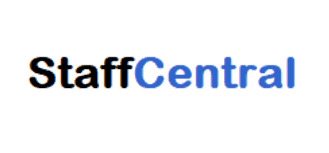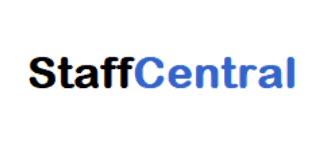Ads
Why This Sector Holds Promise Even in a Tough Economy:
As South Africa moves further into 2025, the labour market remains under severe pressure—official unemployment sits at around 32.9 % in Q1, and the broader “expanded” rate (including discouraged job-seekers) is about 43.1 %.
Despite this, cleaning and housekeeping offer one of the more stable segments of employment. While many industries face contraction, the need for hygiene, comfort and care in homes, commercial buildings, hospitals and hospitality settings continues.
You will be redirected to another website.
Urbanisation, tourism recovery, corporate facility expansion and heightened hygiene standards have all contributed to sustained demand for cleaning professionals. This means that if you’re looking for a job with relatively modest entry requirements but consistent demand, this could be a smart option.
Exploring the Job Types & Where They Exist
Cleaning and housekeeping roles stretch across a variety of settings – understanding where the jobs are helps you tailor your approach.
- Hospitality & accommodation: Hotels, guesthouses, lodges and resorts employ room attendants, laundry assistants, housekeeping supervisors and more. These venues often require high standards of presentation and hygiene, making their staffing needs ongoing.
- Healthcare and clinics: Cleaners and housekeepers in hospitals and clinics play a vital role in infection prevention, patient comfort and regulatory compliance. These jobs often come with specific hygiene standards and training.
- Commercial & corporate buildings: Office parks, shopping centres, retail outlets, and business premises need routine cleaning of workspaces, meeting rooms, restrooms, lobbies and public areas. These roles may offer more regular hours or day shifts.
- Private homes & domestic work: Many households look for reliable cleaners or housekeeping assistants—often with flexible hours and potentially combining tasks such as cooking, ironing and general home maintenance.
- Facilities services companies: Some cleaning professionals work for service firms that contract to many client sites, offering flexibility to staff and the possibility to move across locations or industries.
You will be redirected to another website.
What Employers Look For & How to Position Yourself
Although many of these roles require no advanced degree, being competitive means showcasing the right attributes and readiness. Here are key traits and how you can emphasise them:
- Reliability and punctuality: Showing up on time, being consistent, and demonstrating you can be counted on are often more important than formal qualifications.
- Attention to detail: Employers want staff who can maintain cleanliness standards, notice what needs doing and follow through with care.
- Physical stamina and fitness: Cleaning can be physically demanding—standing, bending, lifting, carrying cleaning equipment, sometimes working shifts.
- Communication and teamwork: You’ll usually report to a supervisor, coordinate with other staff, and follow procedures—basic English or local language comprehension matters.
- Training or certification (optional but helpful): Having a short course or certificate in hygiene, housekeeping, health and safety, or facilities cleaning can give you an edge over other applicants.
- Flexibility: Willingness to work weekends, public holidays or shift-work often opens more opportunities, especially in hospitality and medical environments.
When preparing your CV or application: highlight any previous cleaning, domestic work or customer-service shoes—even informal work counts. Emphasise your availability, reliability, and any special skills you have (e.g., laundry handling, ironing, familiarity with cleaning supplies). A neat presentation and a willingness to learn go a long way.
You will be redirected to another website.
What the Pay and Conditions Look Like (2025 Snapshot)
While specific salaries vary by employer, location and experience, here are ball-park figures you might see:
- Entry-level cleaning positions generally pay from about R4,000 to R7,000 per month, depending on hours and location.
- With experience or working in a more demanding setting (e.g., premium hotel, supervisory role), pay may rise to around R8,000 to R12,000 per month or more if you pick up shifts, overtime or specialised tasks.
- Shifts often include early mornings, evenings or weekends—especially in hospitality, healthcare or large commercial operations.
- Workers may also receive benefits like uniform provision, training opportunities, holiday pay or employee discounts, depending on the employer.
Given the broader labour market challenges (with formal job losses in many sectors and youth unemployment still above 46 % in 2025) choosing a role in a stable sector like cleaning and housekeeping can offer a strong foothold and pathway to growth.
Tips to Stand Out and Secure the Job
Here are practical actions you can take to increase your chances:
- Create a clear, focused CV – No need for a long resume: list your name, contact details, availability, any relevant experience (even if informal) and emphasise your reliability, neat presentation and eagerness to work.
- Tailor your application – If you’re applying to a hotel, mention hospitality-experience or flexible hours; for domestic work, highlight laundry/ironing/housekeeping tasks you’re comfortable with.
- Use reputable job platforms – Look at South African job portals, recruitment agencies, hospitality job boards and verified domestic-work networks. Be wary of any postings that ask for payment upfront.
- Follow up – After submitting your CV, follow up with a polite call or email to confirm receipt and restate your interest. This shows initiative.
- Prepare for the interview – Dress neatly, arrive on time, bring a copy of your CV, show a willingness to learn, ask about shift hours or expectations, and emphasise how you can contribute to cleanliness and service quality.
- Be open to training – If offered in-house training (on cleaning chemicals, safety procedures, housekeeping standards), accept it—this shows you’re committed and improves your long-term prospects.
Keep good conduct and presentation – Hygiene, punctuality, respectful behaviour and teamwork can lead to recommendations, better hours or promotions.
You will remain on the same site.
Career Progression: From Entry to Supervisory Roles
While many start at entry-level, cleaning and housekeeping is far from a dead-end job. If you perform well and gain experience, you can progress to stronger roles such as:
- Housekeeping supervisor: overseeing a team, doing quality checks, managing shift schedules and liaising with managers.
- Facilities cleaning team leader: in larger offices or commercial buildings, leading a cleaning crew or managing a contract site.
- Laundry or linen-department lead: in hotels or hospitals handling laundry operations, stock control and logistics.
- Environmental services assistant or hygiene coordinator: especially in healthcare facilities, where additional training can lead to specialist positions focusing on infection-control standards or green cleaning practices.
- Entrepreneurial opportunities: Some individuals move into running their own small cleaning business, contracting to hotels, offices or homes. With good service and reputation, there’s potential for growth.
As the economy shifts towards more sustainable practices, companies are also increasingly valuing eco-friendly cleaning, waste reduction and hygiene audits—skills in these areas can make your profile more valuable.
Why This Field Matters and Why You Should Consider It
Certainly, South Africa’s labour market faces daunting numbers: only around 40 % of working-age South Africans are formally employed, which is well below peer emerging markets. In that context, cleaning and housekeeping bring some advantages:
- Resilience: No matter the sector, buildings need cleaning, linens need washing, and hygiene must be maintained. This makes the roles less vulnerable to economic swings compared with more specialised jobs.
- Accessibility: With relatively modest entry requirements, many people can enter the workforce quickly, build experience and start earning.
- Skill building: Even in these roles you gain transferable skills—time-management, reliability, attention to detail, operating equipment, working in a team—that can lead you to better roles.
- Purpose and respect: These jobs help create safe, comfortable, clean environments for people—whether guests in a hotel, patients in a hospital or workers in an office. That means your contribution is meaningful.
- Potential for growth: As noted above, starting here doesn’t lock you in. Good performance can lead to higher-paying, supervisory or business roles.
Final Word: Start Here, Grow Forward
If you’re seeking employment in 2025 and are ready to invest reliability, effort and a positive attitude, cleaning and housekeeping could be your entry point into a stable and rewarding career. Use the steps outlined above, adopt a professional mindset, and keep an eye on growth opportunities. Every session of dusting, floor-mopping or linen-changing is a step towards building your reputation and unlocking longer-term potential.
In a market where many sectors are shrinking, this is one area where steady demand remains. Cleanliness, order and comfort are not optional—they’re essential. With the right mindset and proactive approach, you can turn a job opportunity into real growth. Start now, stay reliable, stay visible—and build your path forward.
You will be redirected to another website.

